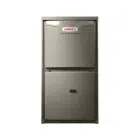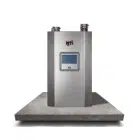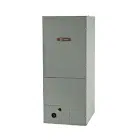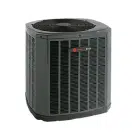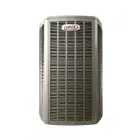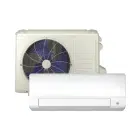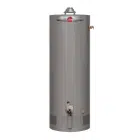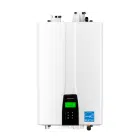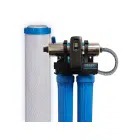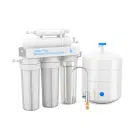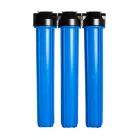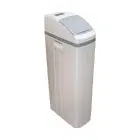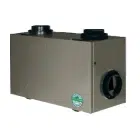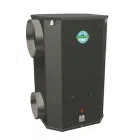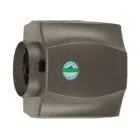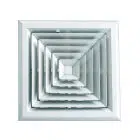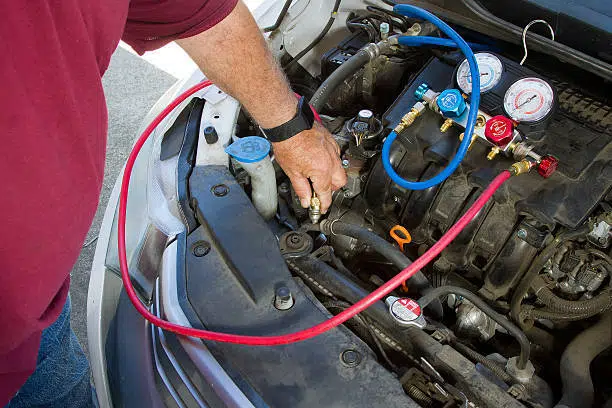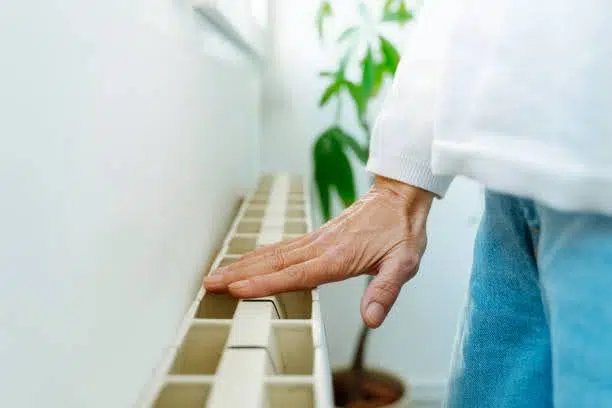
Table of Contents
HVAC. You’ve probably heard the term before—maybe from your technician, or during home renovations—but have you ever stopped to really understand what it means? HVAC stands for Heating, Ventilation, and Air Conditioning. It’s the system that works behind the scenes to keep your home comfortable, whether you’re blasting the heat in January or cranking up the AC in July.
For homeowners in Canada, understanding how your HVAC system works is critical. We face a wide range of weather conditions—harsh winters, hot summers, and everything in between. Your HVAC system doesn’t just keep you cozy; it also helps control indoor air quality and your home’s energy efficiency. So, how exactly does it work? Let’s break it down.
Why HVAC Systems Matter in Canada
Think about this: your HVAC system is running pretty much all year long. From the furnace working overtime in the winter to your air conditioner providing relief in the summer, these systems take on a lot. And because Canada’s climate can be extreme on both ends of the thermometer, having a reliable HVAC system is essential. Without it, winter nights would be unbearable, and summer afternoons could get sweltering.
But it’s not just about comfort. A well-maintained HVAC system can save you money by running more efficiently. Plus, it helps control indoor air quality by filtering out dust, allergens, and even excess moisture. The bottom line? Your HVAC system is key to a comfortable, healthy, and energy-efficient home.
Heating: Keeping You Warm in Winter
When it’s cold outside, your HVAC system kicks into heating mode. In most homes, this means a high-quality furnace or heat pump. A furnace burns fuel—usually natural gas, oil, or propane—to create heat. That heat is then blown through your ducts and into different rooms. Furnaces are efficient and reliable, making them ideal for Canadian winters.
A heat pump works differently. Instead of burning fuel, it transfers heat from the air outside into your home. Yes, even in winter, there’s some heat in the air that the heat pump can capture. These systems are more energy-efficient and can be used for both heating and cooling.
Air Conditioning: Staying Cool in Summer
When summer rolls around, your air conditioner takes over. The AC unit absorbs heat from inside your home, transfers it outside, and blows cool air back into your rooms. Whether you have a central air system or a ductless unit, the concept is the same: removing heat from the air to keep you cool.
In homes with heat pumps, this same system can reverse the process, acting as an air conditioner in the summer by pulling heat out of your home.
Ventilation: Fresh Air Circulation
Ventilation is what keeps your indoor air from becoming stale. It ensures a steady flow of fresh air into your home while pushing out pollutants, allergens, and moisture. This is particularly important in modern, energy-efficient homes where natural airflow is limited. Your HVAC’s ventilation system ensures good air quality by circulating fresh air and removing contaminants.
How Your HVAC System Works Together to Keep You Comfortable
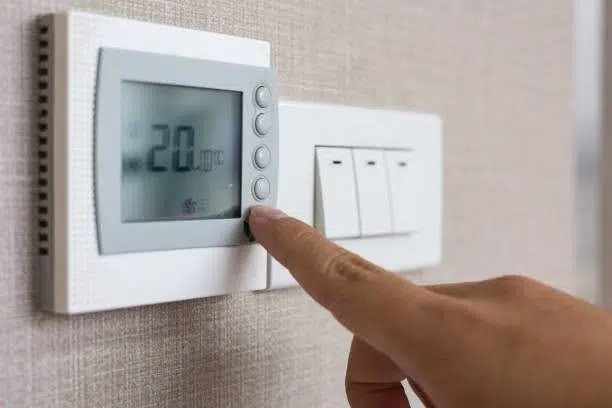
Your HVAC system is more than just heating or cooling—it’s a coordinated system working together to maintain the right indoor environment. Here’s how the different parts interact.
Thermostat: The Command Center
The thermostat is the control hub of your HVAC system. When you adjust the temperature, it sends signals to the system to either heat or cool the air. Modern smart thermostats take things a step further, learning your schedule and optimizing your energy use by adjusting the temperature based on whether you’re home or away. This not only keeps you comfortable but also helps reduce energy bills.
Heating and Cooling: Consistent Comfort
When your home needs heating, your furnace or heat pump takes over, warming the air and distributing it through your ducts. For cooling, the air conditioner or heat pump removes heat from the air inside and releases it outdoors. The key to a balanced HVAC system is that it doesn’t just heat or cool one area—it distributes air evenly, so every room feels just right.
Ventilation: Keeping Air Fresh
Proper ventilation keeps your air fresh by circulating it and removing indoor pollutants. In tightly sealed homes, especially common in energy-efficient designs, this prevents the buildup of moisture and allergens. Ventilation systems also include air filters, which trap dust and particles, ensuring the air you breathe is clean.
Air Ducts: The Delivery System
Your HVAC system’s air ducts are responsible for moving air throughout your home. Without them, the warm or cool air wouldn’t reach each room. Leaky or blocked ducts can reduce efficiency and cause uneven temperatures, so it’s important to ensure they’re in good condition.
Why Regular HVAC Maintenance is Crucial
Your HVAC system works hard year-round, and regular maintenance is essential to keep it running efficiently. Small things, like regularly replacing your air filters, can make a big difference. A dirty filter blocks airflow, making your system work harder and increasing your energy bills. Plus, clogged filters reduce air quality by recirculating dust and allergens.
Routine inspections by an HVAC professional can also catch small issues before they turn into big problems. During a maintenance visit, the technician will check all the major components of your system, from the blower fan to the heat exchanger, making sure everything is functioning properly. This kind of preventative care can extend the life of your HVAC system and help you avoid unexpected breakdowns.
At HVAC Service Solutions, we offer comprehensive HVAC maintenance plans that take the guesswork out of keeping your system in top shape. From seasonal checkups to emergency repairs, our HVAC professionals have got you covered.
Choosing the Right HVAC System for Your Home

Not all HVAC systems are created equal, and choosing the right one depends on several factors, including your home’s size, layout, and the local climate. In Canada, where winters can be long and harsh, having an efficient heating system is essential. But summers can also bring extreme heat, so reliable air conditioning is just as important.
When selecting an HVAC system, consider the following:
- Energy efficiency: Modern HVAC systems are much more energy-efficient than older models, which can save you money on your utility bills. Look for systems with high SEER (Seasonal Energy Efficiency Ratio) ratings for cooling and AFUE (Annual Fuel Utilization Efficiency) ratings for heating.
- Size and capacity: Your HVAC system needs to be the right size for your home. A system that’s too small won’t be able to heat or cool effectively, while one that’s too large will cycle on and off too frequently, wasting energy and causing wear and tear.
- Types of HVAC Systems: There are different types of HVAC systems designed for various needs. For instance, some homes may benefit from ductless mini-split systems, while others require central air conditioning paired with a furnace. Working with an HVAC professional can help you select the best option for your home.
In our previous article, you can find the top 10 most energy-efficient home heating systems for your house in Canada.
Why HVAC Service Solutions is the Right Choice
When it comes to HVAC, you want a company you can trust—especially when your comfort depends on it. At HVAC Service Solutions, we’re committed to providing top-notch service that’s personalized to your needs. Whether it’s an emergency furnace repair in the middle of a Canadian winter or installing a new energy-efficient air conditioning system for summer, we’ve got the expertise to handle it.
Our team of certified HVAC professionals is trained to diagnose problems quickly and accurately, ensuring your system is back up and running as soon as possible. We also specialize in preventative maintenance, helping you avoid costly repairs down the road.
And because we understand that HVAC issues don’t always happen at convenient times, we offer 24/7 emergency service. So whether it’s the coldest night of the year or a heatwave in July, you can count on us to be there when you need us most.
Conclusion
Your HVAC system is the unsung hero of your home, working tirelessly to keep you comfortable in all seasons. Understanding how it works and maintaining it properly can help you avoid headaches, save on energy bills, and extend the system’s lifespan. Whether you need a new installation, a repair, or just a routine checkup, our HVAC professionals are here to help.
Let us take care of your HVAC needs so you can stay comfortable year-round, no matter what the weather outside is doing. There are various types of HVAC systems available, and choosing the right one can make a significant difference in your home’s comfort and energy efficiency.
Frequent Asked Questions
What is an HVAC system?
An HVAC system is a collection of components designed to regulate the temperature, airflow, and overall air quality in your home. HVAC stands for Heating, Ventilation, and Air Conditioning. In colder months, your furnace or heat pump provides heat, while in the summer, the air conditioner cools the air. Ventilation is the year-round process of circulating air, filtering out dust, and maintaining a fresh air supply. Together, these components create a comfortable living environment. HVAC systems can be centralized with ductwork, or they can be ductless, with mini-split systems gaining popularity. The type of system you choose depends on your home’s size, design, and the climate in which you live.
What types of HVAC systems are best for Canadian homes?
Given Canada’s diverse climate, the choice of an HVAC system depends largely on your region. In most parts of the country, a high-efficiency gas furnace combined with central air conditioning is ideal for providing comfort year-round. In milder regions, such as British Columbia, heat pumps are becoming more popular as they can both heat and cool your home. Heat pumps are also energy-efficient and reduce utility costs. Ductless mini-split systems are another good option, particularly for homes without existing ductwork. They allow for flexible zoning, meaning you can control the temperature in different parts of the house individually. It’s important to consult an HVAC professional who can recommend the right system based on your home’s needs and local weather conditions.
How often should I service my HVAC system?
It’s generally recommended to service your HVAC system at least twice a year—once in the spring for your air conditioning and once in the fall for your heating system. Regular maintenance ensures that the system is running efficiently and can prevent unexpected breakdowns. During a routine checkup, an HVAC professional will inspect critical components, clean or replace filters, and make any necessary adjustments or repairs. Ignoring maintenance can lead to higher energy bills, reduced air quality, and a shorter lifespan for your HVAC system. Additionally, regular servicing helps identify small problems before they become costly repairs. Many companies offer annual maintenance plans that make scheduling these checkups easy and affordable.
How long does an HVAC system typically last?
The lifespan of an HVAC system can vary, but on average, a well-maintained system lasts about 15-20 years. A furnace or air conditioner can begin to show signs of wear after 10-15 years, especially if it hasn’t been regularly serviced. Factors like the quality of installation, how often the system is used, and the local climate can all affect longevity. For example, a system in a harsh climate that runs more frequently may wear out faster than one in a milder region. Regular maintenance is key to extending your HVAC system’s life, as it prevents small issues from turning into major problems. Upgrading to newer, more energy-efficient models when your system is aging can also save you money in the long run by reducing energy consumption.
What size HVAC system do I need for my home?
Choosing the right size HVAC system is crucial for both comfort and efficiency. A system that’s too small will struggle to maintain the desired temperature, while an oversized system will cycle on and off too frequently, leading to uneven temperatures and unnecessary wear and tear. HVAC professionals calculate the right size using a process called a load calculation, which considers the size of your home, the number of windows, insulation levels, and the local climate. They’ll also look at the number of occupants and your lifestyle to ensure the system meets your heating and cooling needs. Getting the right-sized system ensures consistent comfort and helps keep your energy bills under control.
What are the benefits of a programmable or smart thermostat?
A programmable or smart thermostat can significantly improve the efficiency of your HVAC system by allowing you to set heating and cooling schedules that match your daily routine. With a programmable thermostat, you can set it to lower the temperature while you’re away and increase it just before you return, saving energy when it’s not needed. Smart thermostats take this concept further by learning your habits and automatically adjusting the temperature based on occupancy. Many models also allow you to control the system remotely through your smartphone, so you can adjust the temperature when you’re not at home. Over time, these thermostats can help reduce your energy bills while improving your home’s overall comfort.
How can I improve the efficiency of my HVAC system?
Improving the efficiency of your HVAC system can lead to lower energy bills and a more comfortable home. Start by regularly replacing your air filters—dirty filters restrict airflow, making your system work harder and use more energy. Sealing any gaps or leaks in your home’s insulation and ductwork can also help maintain the desired temperature without overworking the system. Installing a programmable thermostat allows you to optimize temperature settings based on your schedule, reducing unnecessary energy use. You should also schedule regular maintenance with an HVAC professional to ensure all components are running efficiently. Finally, if your system is old, upgrading to a newer, energy-efficient model can significantly reduce energy consumption.
What are the signs that my HVAC system needs repair?
Several signs indicate that your HVAC system may need repairs. If you notice uneven temperatures throughout your home, or if some rooms are significantly hotter or colder than others, this could indicate a problem with airflow or ductwork. Unusual noises like grinding, banging, or squealing coming from your HVAC system often point to mechanical issues. An increase in your energy bills without a change in usage could mean the system is working inefficiently. If your system frequently turns on and off, or if it struggles to maintain the set temperature, these are also warning signs. Additionally, poor indoor air quality or strange smells from the vents may signal a problem. If you notice any of these issues, contact an HVAC professional for an inspection.
Are there energy-efficient HVAC options for Canadian winters?
Yes, there are several energy-efficient HVAC options suitable for Canadian winters. High-efficiency furnaces with AFUE (Annual Fuel Utilization Efficiency) ratings of 90% or higher are commonly used in colder regions. These systems convert more of their fuel into usable heat, saving you money on energy bills. Heat pumps, which can both heat and cool, are another energy-efficient option, especially in milder climates. They work by transferring heat from the outside air into your home, even in low temperatures. Modern HVAC systems also come with features like variable-speed motors and smart thermostats, which allow for more precise temperature control and reduced energy consumption. Consulting with an HVAC professional can help you choose the best energy-efficient system for your home.
Should I repair or replace my old HVAC system?
Deciding whether to repair or replace your HVAC system depends on its age, the frequency of repairs, and its overall efficiency. If your system is over 15 years old and requires frequent repairs, it may be more cost-effective to replace it with a newer, more energy-efficient model. Newer systems can save you money on energy bills, and they typically come with advanced features that improve comfort and indoor air quality. However, if your system is still relatively new and the repairs are minor, it may be worth fixing the issue. An HVAC professional can assess your system and help you determine the most economical and practical solution based on its current condition.
Share

